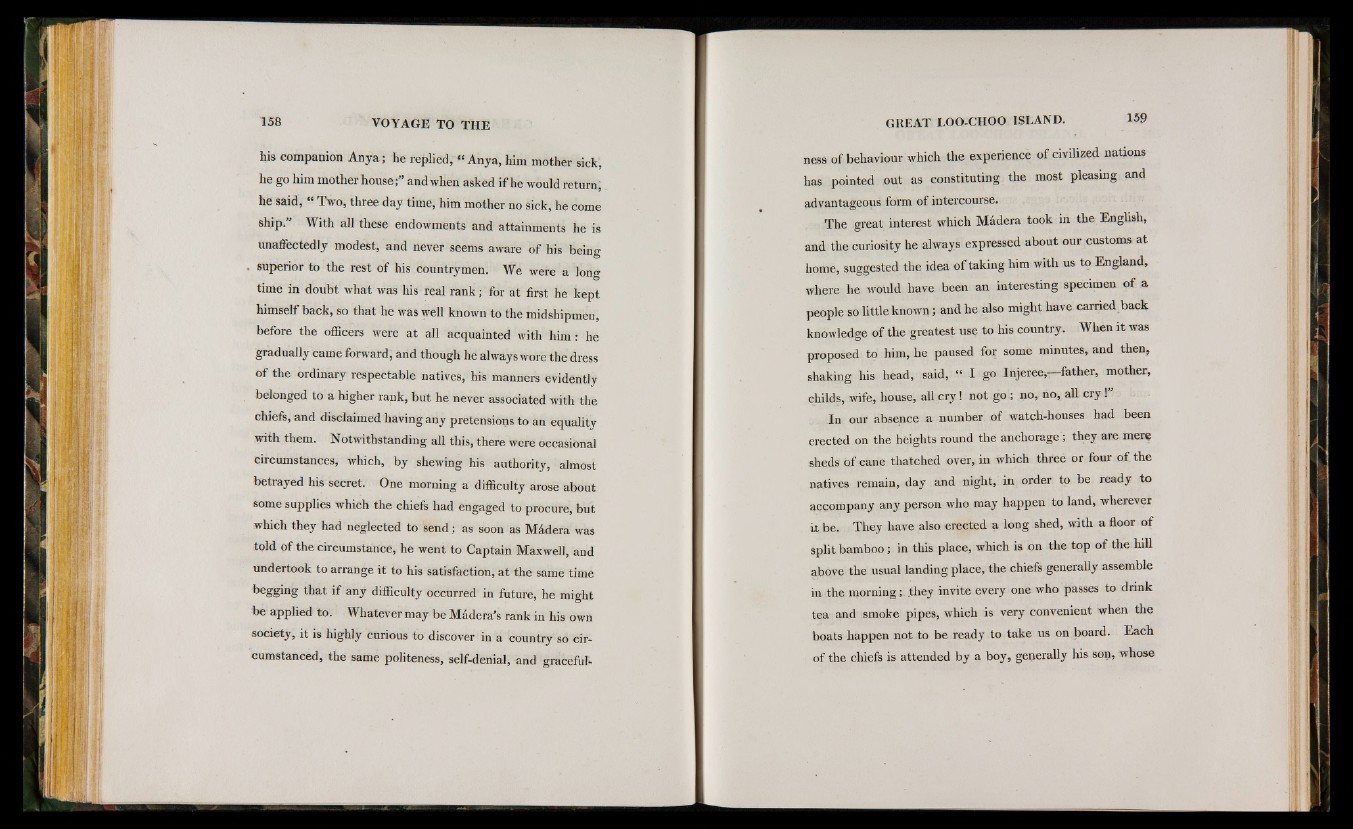
his companion Anya; he replied, «Anya, him mother sick,
he go him mother house;” and when asked if he would return;
he said, Two, three day time, him mother no sick, he come
ship.” With all these endowments and attainments he is
unaffectedly modest, and never seems aware of his being
. superior to the rest of his countrymen. We were a Ions?©
time in doubt what was his real ran k ; for at first he kept
himself back, so that he was well known to the midshipmen,
before the officers were at all acquainted with h im : he
gradually came forward, and though he always wore the dress
o f the ordinary respectable natives, his manners evidently
belonged to a higher rank, but he never associated with the
chiefs, and disclaimed having any pretensions to an equality
with them. Notwithstanding all this, there were occasional
circumstances, which, by shewing his authority, almost
betrayed his secret. One morning a difficulty arose about
some supplies which the chiefs had engaged to procure, but
which they had neglected to send; as soon as MAdera was
told of the circumstance, he went to Captain Maxwell, and
undertook to arrange it to his satisfaction, at the same time
begging that i f any difficulty occurred in future, he might
be applied to. Whatever may be MAdera's rank in his own
society, it is highly curious to discover in a country so circumstanced,
the same politeness, self-denial, and gracefulness
of behaviour which the experience of civilized nations
has pointed out as constituting the most pleasing and
advantageous form of intercourse.
The great interest which Mfidera took in the English,
and the curiosity he always expressed about our customs at
home, suggested the idea o f taking him with us to England,
where he would have been an interesting specimen of a
people so little known; and he also might have carried back
knowledge of the greatest use to his country. When it was
proposed to him, he paused for some minutes, and then,
shaking his head, said, “ I go Injeree-,—father, mother,
childs, wife, house, all c ry ! not g o ; no, no, all c ry !”
In our absence a number of watch-houses had been
erected on the heights round the anchorage; they are mere
sheds of cane thatched over, in which three or four o f the
natives remain, day and night, in order to be ready to
accompany any person who may happen to land, wherever
it be. They have also erected a long shed, with a floor of
split bamboo; in this place, which is on the top of the hill
above the usual landing place, the chiefs generally assemble
in the morning; .they invite every one who passes to drink
tea and smoke pipes, which is very convenient when the
boats happen not to be ready to take us on board. Each
of the chiefs is attended by a boy, generally his son, whose